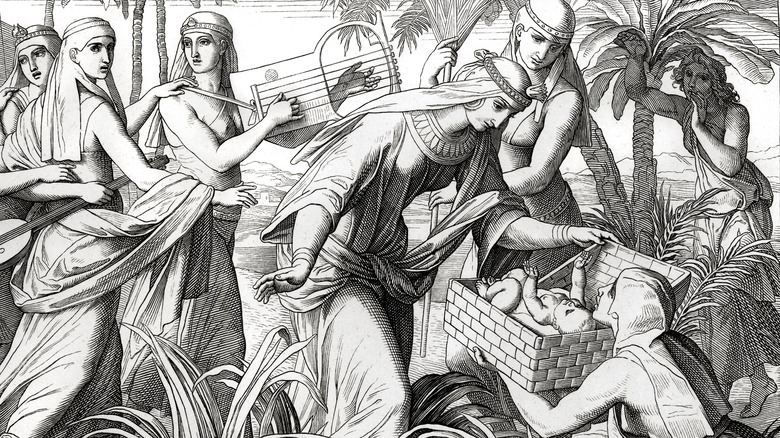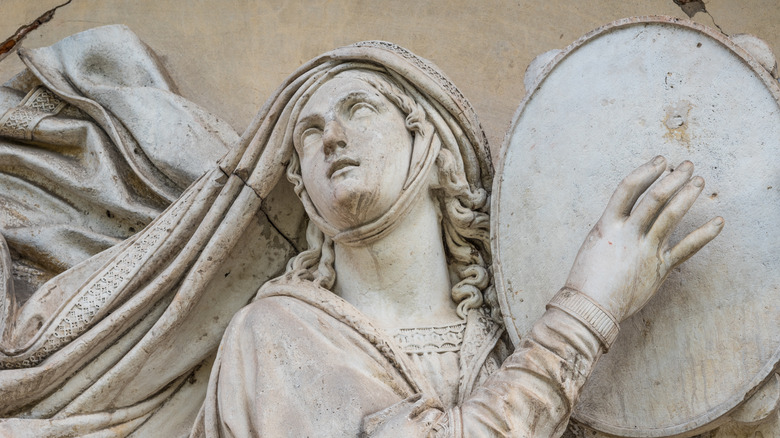The Truth About Miriam The Prophetess In The Bible
If you've been to Sunday school or seen one of the countless movie portrayals, you know the story: The Egyptian Pharaoh declares that all newborn Hebrew boys be thrown into the Nile. The parents of the newborn Moses, however, aren't cool with this idea, so they obey the letter of the law — not the spirit. They put him in a basket and float him on the river, where he's discovered by the Pharaoh's daughter, who's immediately smitten and adopts him as her own.
Fortunately, the basket was never abandoned; baby Moses' older sister Miriam was there the whole time, keeping an eye on things. So when the princess adopts the baby, Miriam appears (seemingly) out of nowhere and says, "Hey, I can get you a wet nurse for the baby," volunteering her own (and Moses') mother. And so Moses grows up in the Egyptian palace, where he is taught about his Jewish heritage and comes of age uniquely equipped to lead his people out of slavery and into freedom.
And he couldn't have done it without his big sister! But hey, what happened to her? She doesn't just disappear after Moses' infancy, does she? Read on for the real deal about Miriam.
Miriam was a prophetess — and according to some, on equal footing with Moses and Aaron
First things first: It's not actually even clear that the "sister" mentioned early on in Exodus — in the basket narrative — is actually Miriam. The text only refers to her as Moses' "sister." So where do we get the name "Miriam"? Not until after the crossing of the Red Sea in Exodus 15:20. "Then Miriam the prophetess, the sister of Aaron, took a tambourine in her hand, and all the women went out after her with tambourines and dancing," it reads.
At various points in the Torah, God is portrayed as speaking to Miriam directly — in the same way he does to both Moses and their brother Aaron (via EWTN). And according to the Talmud — ancient Jewish writings that supplement and interpret the Old Testament — she was the only reason Israel had water in the desert. Ultimately, her "merit" led a miraculous well to follow them (via Chabad.org), which is why the people of Israel don't complain about being thirsty until shortly after her death (Numbers 20).
Unfortunately for Miriam, her undoing proved to be what the modern crowd likes to call "racism." In Numbers 12, she (along with Aaron, who gets off comparatively easily) complains about the fact that Moses is married to a Cushite instead of a Hebrew woman. God isn't impressed and strikes her with leprosy, and she's cast out of the camp until the skin disease goes away. And while she's eventually let back in, she doesn't get any more dialog in the text until her death (via Jewish Women's Archive).

